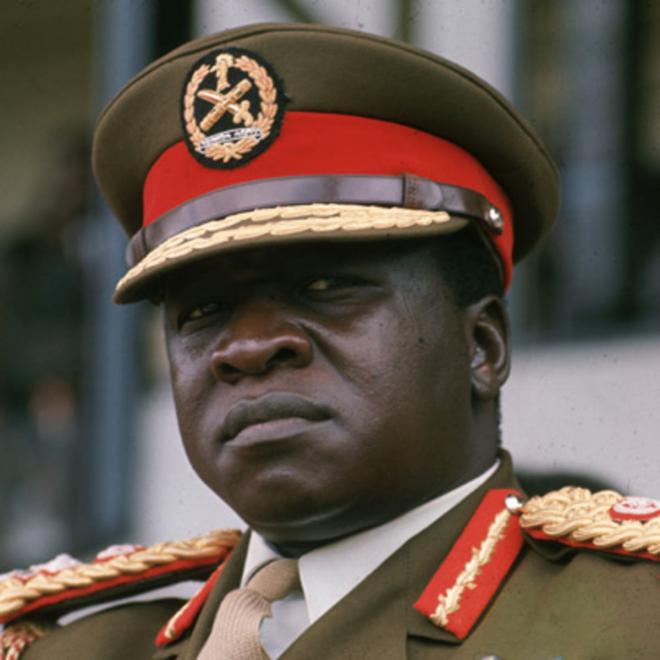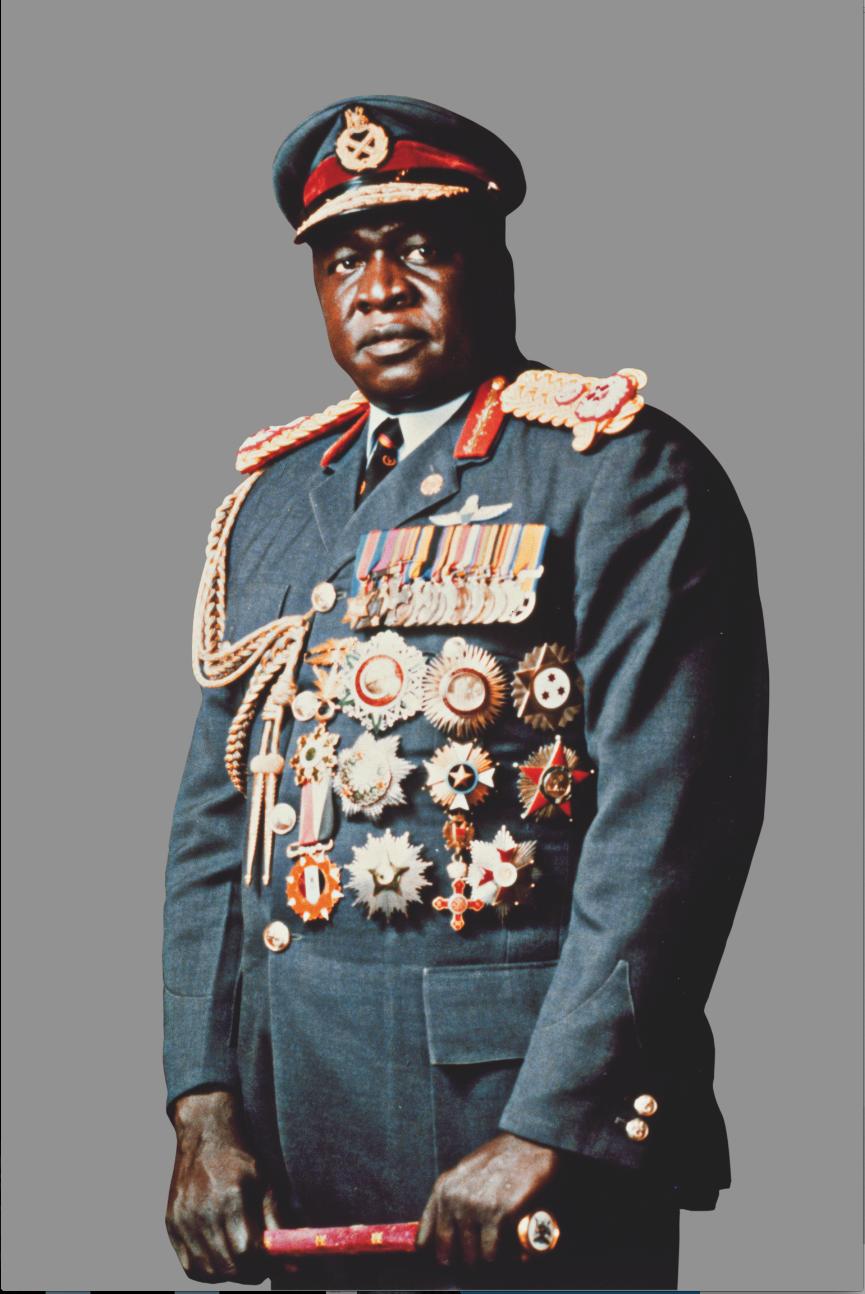The net worth of a person or organization refers to the total value of their assets minus their liabilities. For instance, Idi Amin's net worth was estimated to be around $100 million at the time of his death in 2003.
Determining net worth is important for financial planning, assessing someone's wealth, and making informed decisions. It provides a snapshot of an individual's or entity's financial health and can be used to track changes over time. Historically, the concept of net worth has been crucial in understanding the distribution of wealth and economic inequality within societies.
This article will delve into the details of Idi Amin's net worth, exploring the sources of his wealth, how it was accumulated, and its impact on his life and legacy.
- Jasi Bae Naked A Comprehensive Exploration
- Subhashree Sahu Nude Debunking Myths And Understanding The Impact On Personal Privacy
Idi Amin Net Worth
Understanding the key aspects of Idi Amin's net worth is crucial for gaining a comprehensive view of his financial situation and the sources of his wealth. These aspects include:
- Assets
- Liabilities
- Income
- Expenditures
- Investments
- Property
- Businesses
- Loans
- Cash
- Debt
By examining these aspects, we can gain insights into Amin's financial management, his lifestyle, and his overall economic impact. For example, his extensive property holdings and investments suggest a significant level of wealth accumulation, while his debts and loans indicate potential financial liabilities. Understanding these key aspects provides a deeper understanding of Amin's financial history and legacy.
| Personal Details | Bio Data ||---|---|| Name | Idi Amin Dada || Birth Date | c. 1928 || Birth Place | Koboko, Uganda || Death Date | August 16, 2003 || Death Place | Jeddah, Saudi Arabia || Occupation | Military officer, dictator || Years Active | 1951-1979 || Spouse(s) | Kay Amin (m. 19661972), Nora Amin (m. 19741979) || Children | 45 reported children |Assets
Assets play a pivotal role in understanding Idi Amin's net worth. They represent the value of everything he owned, minus any liabilities or debts. Amin's assets were extensive and included a diverse range of properties, investments, and other valuables.
- Kaylee Hartung Eye Injury A Comprehensive Look At Causes Treatments And Recovery
- Picuki The Ultimate Guide To Enhancing Your Instagram Experience
- Real Estate: Amin owned numerous properties in Uganda and other countries, including a large estate in Kampala and a palace in Arua. These properties contributed significantly to his overall net worth.
- Investments: Amin had a portfolio of investments, including stocks, bonds, and other financial instruments. These investments provided him with a steady stream of income and helped to increase his wealth.
- Businesses: Amin owned several businesses, including a construction company and a transportation company. These businesses generated revenue and contributed to his overall net worth.
- Cash and Gold: Amin also held a significant amount of cash and gold. This provided him with liquidity and a store of value in times of economic uncertainty.
Understanding the composition of Amin's assets provides valuable insights into how he accumulated his wealth and the extent of his financial resources. These assets played a crucial role in shaping his lifestyle, political power, and overall legacy.
Liabilities
Within the context of Idi Amin's net worth, liabilities played a crucial role in determining his overall financial standing. Liabilities represent debts or obligations that an individual or entity owes to others. Understanding the nature and extent of Amin's liabilities is essential for gaining a comprehensive view of his financial situation.
- Personal Loans: Amin obtained personal loans from various sources, including banks and individuals. These loans were used to finance his lifestyle, cover personal expenses, and support his political activities.
- Government Debts: As the President of Uganda, Amin incurred substantial government debts. These debts were primarily used to fund military expenditures, infrastructure projects, and other government initiatives.
- Business Liabilities: Amin's businesses also carried liabilities, such as loans, unpaid invoices, and taxes. These liabilities could impact the profitability and overall value of his business ventures.
- Compensation Claims: During Amin's regime, there were numerous human rights violations and atrocities committed. As a result, there were potential compensation claims against Amin and his government, which could have significant financial implications.
An examination of Amin's liabilities provides insights into his financial obligations, the potential risks he faced, and the challenges he encountered in managing his finances. These liabilities influenced his decision-making, shaped his economic policies, and ultimately contributed to his financial legacy.
Income
Income represents the inflow of funds that contribute to an individual's or entity's net worth. In the context of Idi Amin's net worth, understanding the sources and amount of his income is essential for assessing his overall financial situation and the accumulation of his wealth.
- Government Salary: As President of Uganda, Amin received a substantial salary and various allowances. This income provided him with a steady stream of funds and contributed significantly to his net worth.
- Business Ventures: Amin owned and operated several businesses, including a construction company and a transportation company. These businesses generated revenue and profits, further increasing his wealth.
- Foreign Aid and Assistance: During Amin's regime, Uganda received significant foreign aid and assistance from various countries. Amin may have diverted or misappropriated some of these funds, contributing to his personal wealth.
- Extortion and Corruption: Amin's regime was characterized by widespread extortion and corruption. He and his associates allegedly extorted money from businesses, individuals, and foreign governments, further enriching themselves.
An examination of Amin's income sources highlights the various ways in which he accumulated wealth and the potential controversies surrounding his financial gains. These sources of income shaped his economic policies, influenced his decision-making, and ultimately contributed to his overall net worth.
Expenditures
In the context of Idi Amin's net worth, understanding his expenditures is essential for assessing his overall financial management and the accumulation of his wealth. Expenditures represent the outflow of funds used to cover various expenses and obligations. An examination of Amin's expenditures provides insights into his lifestyle, priorities, and the potential impact on his net worth.
One critical component of Amin's expenditures was his personal spending. He was known for his extravagant lifestyle, which included luxury cars, lavish parties, and expensive gifts. These personal expenses significantly contributed to the depletion of his wealth and may have hindered his ability to accumulate even greater riches.
Additionally, Amin's political and military expenditures played a significant role in shaping his net worth. He spent vast sums of money on arms purchases, military campaigns, and the maintenance of his regime. These expenditures were often financed through government funds, foreign aid, or dubious means, potentially contributing to corruption and mismanagement.
Understanding the relationship between expenditures and Idi Amin's net worth highlights the importance of responsible financial management and the potential consequences of excessive spending. It also sheds light on the complex interplay between personal desires, political ambitions, and the accumulation of wealth.
Investments
Understanding investments is crucial in assessing Idi Amin's net worth. Investments represent assets acquired with the expectation of financial gain. Amin's investment portfolio played a significant role in shaping his overall wealth and financial standing.
- Real Estate: Amin invested heavily in real estate, both in Uganda and abroad. His extensive property portfolio included residential buildings, commercial centers, and agricultural land. These investments provided him with a steady stream of rental income and potential capital appreciation.
- Stocks and Bonds: Amin also invested in stocks and bonds, diversifying his portfolio and seeking potential returns. His investments included both domestic and international markets, reflecting his global financial interests.
- Businesses: Amin owned and operated several businesses, including a construction company and a transportation company. These businesses generated revenue and contributed to his overall wealth. Some of these businesses were used as vehicles for investment and financial gain.
- Gold and Precious Metals: Amin held significant amounts of gold and precious metals as a store of value and hedge against inflation. This investment strategy demonstrated his understanding of financial markets and his desire to preserve his wealth in times of economic uncertainty.
Amin's investments highlight his financial acumen and his ability to generate wealth beyond his government salary. His diversified portfolio, encompassing various asset classes and geographical locations, reflects his sophisticated approach to wealth management and his pursuit of financial security.
Property
Property played a significant role in shaping Idi Amin's net worth. Real estate investments were a cornerstone of his wealth accumulation strategy. Amin acquired numerous properties in Uganda and abroad, including residential buildings, commercial centers, and agricultural land. These properties generated rental income and potential capital appreciation, contributing substantially to his overall net worth.
One notable example is Amin's vast estate in Kampala, Uganda. This sprawling property featured luxurious amenities and served as a symbol of his wealth and power. Amin also owned properties in Egypt, Saudi Arabia, and other countries, demonstrating his global investment reach.
Property ownership provided Amin with several financial advantages. It allowed him to diversify his portfolio, reduce investment risk, and generate passive income through rent. Additionally, real estate investments often appreciate in value over time, providing long-term capital gains.
Understanding the connection between property and Idi Amin's net worth highlights the importance of strategic asset allocation and the potential financial benefits of real estate investments. Amin's extensive property portfolio showcases the use of property as a means of wealth accumulation and preservation.
Businesses
Businesses played a pivotal role in shaping Idi Amin's net worth. Amin's entrepreneurial ventures contributed significantly to his overall wealth and provided him with a steady stream of income. One of his most notable business endeavors was the construction company he established, which undertook various government projects and private construction contracts.
Through his construction company, Amin was able to secure lucrative contracts and amass a substantial fortune. He also invested in other businesses, including a transportation company and several agricultural ventures. These businesses generated additional revenue and diversified his income sources, further contributing to his net worth.
Understanding the connection between businesses and Idi Amin's net worth highlights the importance of entrepreneurialism and business acumen in wealth accumulation. Amin's strategic investments in various business sectors allowed him to maximize his financial gains and establish a strong economic foundation.
Loans
Loans played a significant role in shaping Idi Amin's net worth. Amin's extensive borrowing contributed to his wealth accumulation and influenced his financial standing. He obtained loans from various sources, including banks, individuals, and foreign governments.
The funds acquired through loans were used to finance a range of expenditures, including government projects, business ventures, and personal expenses. Amin's construction company, in particular, benefited from loan financing, enabling it to undertake large-scale projects. By leveraging loans, Amin was able to expand his business operations, generate revenue, and increase his overall net worth.
However, it is important to note that excessive borrowing can also lead to financial risks and challenges. Amin's reliance on loans may have contributed to debt accumulation and potential repayment difficulties, especially in the face of economic or political instability. Understanding the interplay between loans and Idi Amin's net worth highlights the importance of responsible financial management and the potential consequences of excessive borrowing.
Cash
Cash played a significant role in shaping Idi Amin's net worth, providing him with liquidity and flexibility in managing his finances. His cash holdings included physical currency, demand deposits, and other liquid assets.
- Physical Currency: Amin kept a substantial amount of physical currency in various denominations, both Ugandan and foreign. This provided him with immediate access to funds for personal expenses, political activities, and other needs.
- Demand Deposits: Amin maintained demand deposits in several bank accounts, both in Uganda and abroad. These accounts offered him easy access to funds through withdrawals, checks, or electronic transfers.
- Liquid Assets: In addition to physical currency and demand deposits, Amin also held other liquid assets, such as short-term government bonds and money market instruments. These assets provided him with a high degree of liquidity and could be easily converted into cash when needed.
The liquidity and flexibility provided by cash allowed Amin to respond quickly to changing circumstances and capitalize on opportunities. It also enabled him to maintain a high level of financial independence and reduce his reliance on loans or other forms of financing. Understanding the significance of cash in relation to Idi Amin's net worth highlights the importance of liquidity and financial flexibility in managing wealth effectively.
Debt
Debt played a complex and significant role in shaping Idi Amin's net worth. Throughout his presidency, Amin accumulated substantial debt, both domestic and international, which had a profound impact on his financial standing and the economic trajectory of Uganda.
One of the primary causes of Amin's debt was his ambitious spending on military expenditures. In order to maintain his regime and suppress dissent, Amin invested heavily in the military, purchasing arms and equipment from foreign suppliers. This spending put a significant strain on Uganda's budget and led to a rapid accumulation of debt.
Furthermore, Amin's economic policies, characterized by nationalization and economic mismanagement, contributed to the country's declining economic performance. This, in turn, reduced government revenue and made it more difficult to service the growing debt burden. As a result, Amin's government resorted to borrowing heavily from international lenders, including the International Monetary Fund (IMF) and the World Bank.
The accumulation of debt had severe consequences for Uganda's economy. The government was forced to divert precious resources away from essential services such as healthcare and education to repay its debts. This led to a decline in living standards for the Ugandan people and hindered the country's long-term economic development.
In examining Idi Amin's net worth, we gain insights into the complex interplay between wealth, power, and the economic consequences of political decisions. Amin's accumulation of wealth through various means, including real estate investments, business ventures, and foreign aid, highlights the opportunities and risks associated with amassing personal fortunes in the context of political leadership.
His extensive spending on military expenditures, combined with economic mismanagement and excessive borrowing, led to a substantial debt burden for Uganda. This debt had severe implications for the country's economic development and the well-being of its citizens. The case of Idi Amin serves as a cautionary tale about the potential consequences of unchecked personal ambition, the importance of responsible financial management, and the need for transparency and accountability in the use of public resources.
- Buford Pusser The Legendary Sheriff Who Changed American Law Enforcement
- Sophie Rain Spiderman Video A Comprehensive Guide


